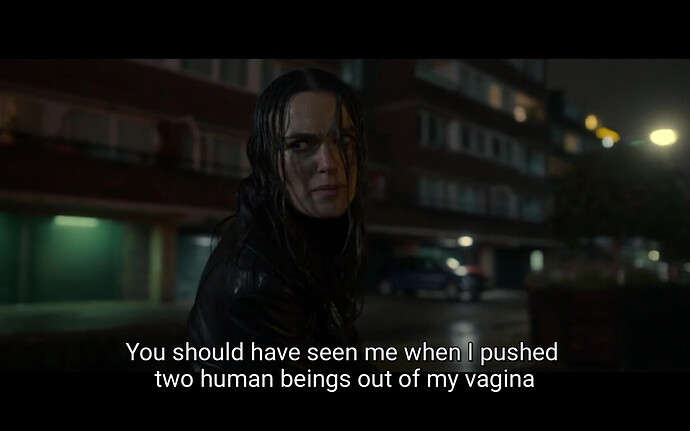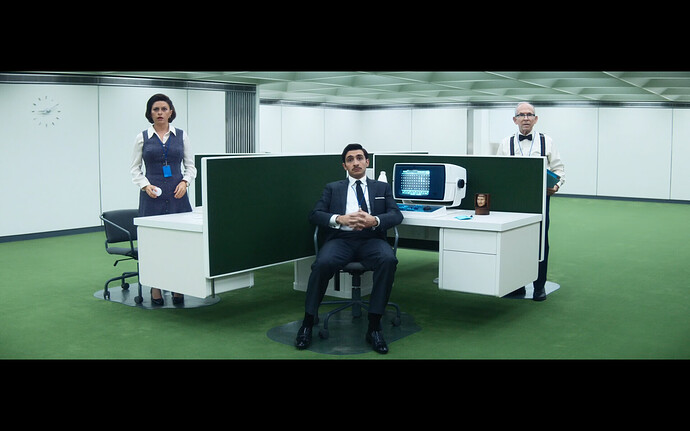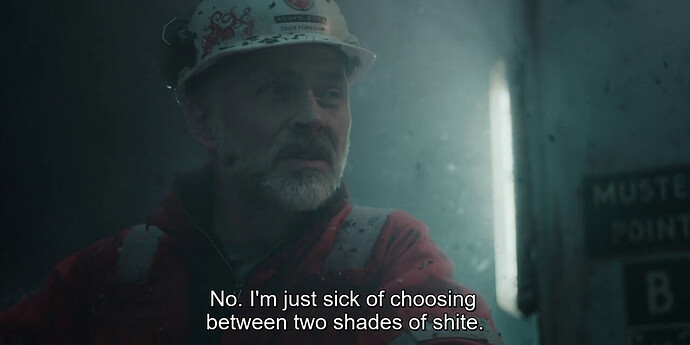This is another posting about streamers, which I once again encourage you to ignore if you’re not interested in the topic.
I’m referencing what is a recent and sort of simplified article following up on the long N + 1 article that was posted here (I think by @OhBollox) a short time ago:
The article doesn’t shed any new light on the topic of Netflix dumbing down scripts so viewers can pay more attention to their phones than the show (“second screen” meaning that the show and its screen is “secondary” to a viewer’s phone screen), but I was pleased to see another TV writer giving the topic some headline space. And he did call some script writers and their agents to ask whether netflix told them to dumb down their scripts (I won’t spoil the results).
I don’t think there’s any question that, in the words of LCD Soundsystem (whose first album is 20 years old this week…sigh), this is happening–I think the question is, Do people like it?
One of my close friends for many years used to always have his TV on in the background when he was at home, and he would run episodic shows that he’d already seen. Sometimes he’d sit and watch, but most of the time, it was just on while he did others things, like a conversation friends were having in the same room. He lived alone, and he liked having the TV on. And because he knew the shows so well already, he didn’t have to pay attention, it was just comfortable noise. My mother, who also lives alone, does this from about October to January every year with the Hallmark channel. The rest of the year, she puts on the Weather channel (which I ask her to turn off immediately anytime I’m visiting, under the perhaps mistaken presumption that I am more interesting than the Weather channel).
Over the years, I’ve found a surprising number of people engage in this background-TV-noise behavior. And so what I think netflix is doing by intentionally creating some of their programming to act as “secondary” in the attention priority stream for viewers is simply removing the timesuck of having to had actively paid attention and watched a show or movie the first time. Now you can fulfill the curiosity of putting on something new while also not paying close attention and getting the same feeling of easy familiarity at once.
All of which also leads me to believe that what they’re really going for with this kind of programming is repeat views. If people had a satisfying experience with the show or movie the first time, I think netflix believes they will put it on again when they can’t decide what to watch or simply want some noise to fill their living space. And it’s a good strategy, honestly. Given that the majority of last year’s most-streamed shows were older shows (that people likely just had on in the background), this is kind of a brilliant strategy, actually.
I think TV critics are incensed about this because it devalues content (not ALL content, by any means, but some), which in turn lowers expectations for content and therefore makes their jobs a little less relevant. If the trend grows and people stop thinking content should be held to a higher standard, the TV critics who rely on standards to assess content become unnecessary. And if there’s one thing I’ve found that TV and movie critics like more than TV and movies, it’s feeling that what they’re doing is tremendously important.
While I think this “secondary screen” business is interesting and worth noting, I also think TV critics are essentially throwing a tantrum. I think that, because they take themselves so seriously (and hold that all content “in the medium” must meet standards), they have naively lost sight of the fact that has been reiterated time and again by netflix: netflix is in business to make money, not to make great content. The broadcasting and creation of content is simply a means to make money for netflix. If creating new content that they don’t actually expect people to pay attention to results in more hours being spent on their platform, they will 100% do that and do more and more of it if the strategy works.
Just as critics were once clutching their pearls about reality television ruining TV, they’re now looking askance at whatever this kind of programing is. Netflix isn’t so foolish as to stop making shows that will more directly engage viewers, they’re just trying out ideas and seeing what works and parsing the audience, the way they always have. I was never going to watch “The Irish Wish,” but my mom might, and that’s how you build a new audience.
Last thing is a quote from the article I linked to: “I think people are always hungry for stories made with nuance, care and attention to detail, whether they realise it or not.” I think that’s wrong–I think sometimes a lot of people just want to be entertained and not have to think about “nuance.” I also think that’s not how you spell “realize.”




